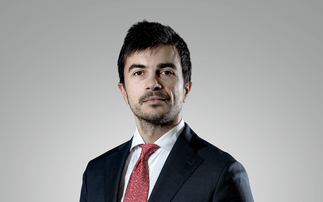PARTNER INSIGHT: Jeremy Podger, portfolio manager of the Fidelity Global Special Situations Fund explains how 30 years of managing global equities is helping him to decipher the key underlying trends that are shaping markets today.
We have seen a long period post the financial crisis where the US, and particularly the tech sector, has been the principal driver of global equities. However, market movements and events related to some of these names over the opening months of the year have served a timely reminder that leadership can change and nothing lasts forever.
In this environment, the benefits of diversification - rather than focused exposure to a specific theme, sector or region - through a carefully managed global equity portfolio could help investors navigate a more challenging and changeable backdrop from here.
"The benefit of global equities is investors have a live and ongoing reallocation process within their portfolio at all times, alongside ongoing and careful management of risk," explains Jeremy Podger, portfolio manager of the £2.4bn Fidelity Global Special Situations Fund. "Whilst the way I manage funds means you won't expect years of double-digit outperformance versus the benchmark on the way up, equally the full effects of market busts are not felt either and that is an important consideration today."
For any global equity investor, correctly calling the markets or a specific theme is a binary game, and by his own admission Podger has never been the type of global equity manager to "identify a theme, invest in it and then nicely time the top and bottom". Yet too often investors do play themes directly in global equities, attracting massive inflows which can unintentionally drive up the market: "Then it often goes horribly wrong and investors have to unwind their investments in said theme," explains Podger. "This is when investors find there is nowhere else to go as they only had one story (or theme) to tell."
While this narrative is a familiar occurrence for some, Podger's experience of managing global equities since 1990 has been significantly different.
Rather than invest in specific global equity trends or themes, the philosophy behind Podger's Global Special Situations Fund focuses more on three types of ‘investments' rather than companies specifically. In this regard, Podger looks to combine corporate change - typically related to M&A or restructurings - with exceptional value opportunities, as well as unique businesses that enjoy a strong competitive position and dominate their respective niche.
While he is always cognisant of the wider trends that come in and out of fashion, his investment philosophy analyses the underlying story that drives and determines a company's fundamental outlook.
This strategy has assisted him in successfully navigating a series of bubbles over the past 30 years, from the Asian currency crisis in the mid-1990s, to the tech bubble crash in the early 2000s.
Click here to read the full interview and see the areas of the market Podger believes could be sensitive to high valuations and bubble territory.













